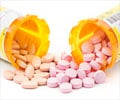Oral Anticoagulants or Blood Thinners
Warfarin is the most commonly used oral anticoagulant. Dabigatran etexilate is a newer drug recently approved for use by the FDA.
Oral anticoagulants, as the name suggests, are administered via the mouth. The most commonly used among these is warfarin. Others include bishydrocoumarin and acenocoumarol. Dabigatran etexilate is a newer drug recently approved for use by the FDA.
Warfarin
Warfarin was used as a rat poison. It was later found to be an effective anticoagulant. The clotting factors II, VII, IX and X need an active form of vitamin K for their synthesis. Warfarin prevents the activation of vitamin K, thus preventing the synthesis of the four clotting factors. It takes 1 to 3 days to reach its full effect. Its anticoagulant effect is monitored using a blood test called prothrombin time. Another blood test called the International Normalized Ratio (INR) is a more reliable indicator of the anticoagulant effect of warfarin.
The main side effect of warfarin is bleeding. The bleeding episode may be mild or serious enough to cause death. Giving the patient fresh blood transfusion and vitamin K can treat it. Warfarin in addition may also cause skin damage.
A number of conditions can alter the effect of warfarin. Conditions like liver disease, increased thyroid hormone level and prolonged antibiotic treatment result in an increased than expected effect. Conditions such as pregnancy and kidney disease can reduce its effect. A number of drugs can also alter its effects, hence caution is needed when warfarin is administered with other drugs. It should not be administered during pregnancy since it can cause fetal defects.
Dabigatran etexilate (Pradaxa)
Dabigatran etexilate has been recently approved by the FDA to prevent stroke and embolism in patients with atrial fibrillation. Unlike warfarin, It does not need blood monitoring of its anticoagulant effect. A reduced dose may be needed in patients with kidney disease. Its major side effects are bleeding and digestive tract problems such as pain and gastritis.












